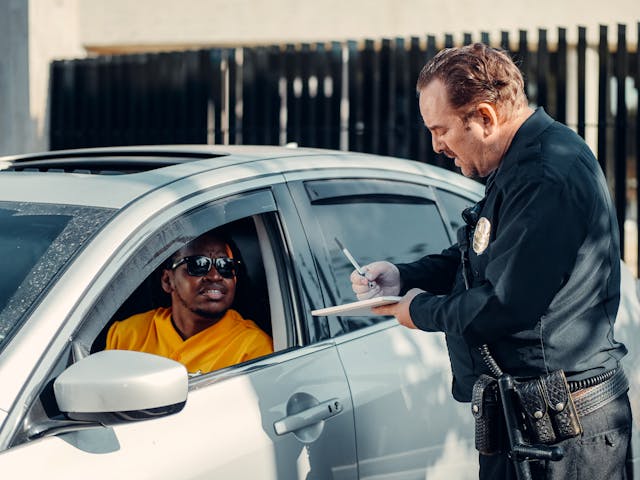So, you’ve found yourself facing a careless driving charge. Maybe there was a moment of distraction, or perhaps you feel it wasn’t really careless driving at all. Either way, this is something no one wants to deal with, and the stakes can be high. A careless driving conviction can impact your licence, your insurance, and even your job if driving is part of it. But before you panic, let’s walk through what you need to know and how to approach your defence with confidence.
What Exactly is a Careless Driving Charge?
To put it simply, careless driving is when someone drives without due care and attention, or in a way that falls below the standard expected of a competent driver. This might include actions like swerving between lanes, tailgating, failing to signal, or even driving too fast for road conditions. However, this is a broad definition, and not every error on the road will automatically qualify as “careless.”
The main thing that distinguishes careless driving from more serious offences is the lack of intent. Careless driving typically doesn’t involve purposeful or dangerous actions, unlike reckless or dangerous driving, which carry more severe penalties. However, the potential consequences can still be serious, making it important to understand your rights and options.
What Are the Penalties for Careless Driving?
Penalties for careless driving vary depending on the specifics of the offence. They could include points on your licence, a fine, or in serious cases, even a court appearance. If this is your first offence or it’s a minor incident, you might receive a fixed penalty notice, which typically involves a fine and three penalty points. But if it’s a more significant matter, it could lead to a summons, where the court has the option to increase fines and add more points. For repeat offenders or particularly serious cases, a driving ban could be on the table.
Remember, even just a few points can affect your insurance, and you could see your premium rise significantly. So, if you’re facing a careless driving charge, it’s worth carefully considering all the options available to you to minimise any impact.
Understanding Your Defence Options
When facing a careless driving charge, the best approach is to assess your options and consider any possible defences that could work in your favour. This is where legal advice comes in, and firms like OTD Legal can help you understand the specifics of your situation. They’ll look at your case, analyse the evidence, and suggest strategies based on their expertise.
While every situation is unique, a legal professional can help identify whether the charge is accurate or if there are circumstances that may reduce its impact. For example, factors like road conditions, distractions beyond your control, or even issues with how evidence was gathered could all play a role in how your case unfolds.
Key Defences to Explore
If you decide to challenge the charge, here are some key defences that might be relevant to your situation:
- Mistake or Misinterpretation – Sometimes, a momentary lapse might be mistaken for careless driving when it wasn’t. For example, swerving slightly to avoid an obstacle or adjusting position on a narrow road may appear careless, but these actions can be justified when explained.
- Road Conditions – Poor weather, unexpected hazards, or unfamiliar roads can affect anyone’s driving. If there were unusual circumstances on the day, this could be part of your defence, highlighting that your actions were reasonable given the conditions.
- Distractions Beyond Your Control – If something or someone outside the vehicle unexpectedly impacted your driving, like another driver’s sudden manoeuvre, it could serve as a defence. Not all distractions are the driver’s fault, and courts may consider this when reviewing the charge.
- Quality of Evidence – Police evidence is often gathered through witness statements, dashcams, or surveillance. If there’s any doubt about the accuracy of this evidence, or if there’s a reason to believe it was obtained unfairly, this could strengthen your case. A lawyer can help investigate whether any procedural errors were made that could benefit you.
- Mitigating Circumstances – In some cases, it’s possible to argue that the act wasn’t careless, but if the court finds otherwise, it may be possible to present mitigating factors. These could include your driving record, your conduct after the incident, or even your reasons for driving as you did in the moment.
How to Prepare for Your Defence
If you’ve decided to fight the charge, preparation is essential. Begin by gathering any evidence you can to support your case. This might include:
- Photographs of the Location – Having images of the road, signs, or any hazards in the area can help recreate the conditions you were driving in.
- Witness Statements – If someone else witnessed the incident and can provide a statement supporting your version of events, this can be invaluable.
- Your Own Account – Write down a clear, detailed account of the incident while it’s fresh in your mind. Include details like weather, time of day, visibility, and any other specifics that could support your case.
A lawyer will help you organise this information and ensure it’s presented effectively. Remember, you’ll need to be clear, accurate, and consistent when explaining your actions, so review everything carefully.
What Happens if You’re Convicted?
If you do end up convicted of careless driving, don’t assume it’s the end of the road. You may be able to appeal the decision, particularly if new evidence comes to light or if there were any procedural issues with how the charge was handled. Keep in mind, though, that the appeals process can be complex, and seeking legal guidance early can make a significant difference in how you proceed.
Moving Forward with Confidence
Facing a careless driving charge isn’t something anyone expects, but with the right knowledge and support, you can address it head-on. Remember, you have options, and understanding the law can help you find the best path forward. From considering potential defences to gathering evidence and consulting professionals, taking action now could make all the difference in protecting your record. By staying informed and prepared, you’re setting yourself up for the best possible outcome.











